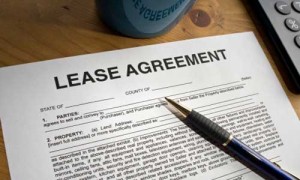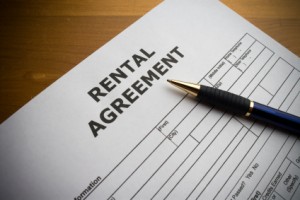Posted by Teresa on June 19, 2013 under Landlord Tips, Tenant Credit Checks | 
 Have you been thinking about becoming a landlord? Do you think you have what it takes to be a successful one? Despite the rise in home prices over the past couple of years, it could still be a great time to purchase investment property in your neck of the woods. Mortgage rates remain at historic lows, and some bargains are still out there.
Have you been thinking about becoming a landlord? Do you think you have what it takes to be a successful one? Despite the rise in home prices over the past couple of years, it could still be a great time to purchase investment property in your neck of the woods. Mortgage rates remain at historic lows, and some bargains are still out there.
New landlords are typically new investors, but the club also includes folks who’ve had a hard time selling their homes, who are turning to renting to keep the mortgage paid. And while there are plenty of resources out there for newbies, the advice of seasoned landlords can be priceless.
Here’s a compilation of what it takes to be a successful landlord, as provided by our clients over the years:
Business acumen: Treating the landlording business like a hobby is a mistake. It’s a business, in which you are trying to make money. Never forget that. Be professional. Keep excellent records. Maintain procedures and follow them. Pay for professional tax and legal advice.
Toughness: You’ll have to enforce your rules in every situation, with every tenant or prospective tenant. At times, tenants will appeal to your softer side, asking for leniency, extensions on the rent or other favors. And you’ll have to be tough.
Patience: On the other hand, you’ll be dealing with people, not numbers. Being patient (and even kind) while enforcing your rules will go a long way to establishing a good rapport with your tenants. You’ll also need patience when your phone rings at 2 a.m., when a tenant stops up the sink for the fourth time and when your landscaping crew cuts back the wrong tree.
Outgoing personality: You don’t need to be s total extrovert or comedian to be a successful landlord. But you should be good at dealing with people, able to confront or engage them as the situation warrants, and ready to smile—even when you don’t feel like it. Remember, your tenants are your customers. A pleasant demeanor will go a long way.
Consistency: Some landlords apply the rules according to the tenant or prospective tenant. For example, Tenant A’s kids are allowed to have huge float toys in the pool because you like them better than Tenant B’s kids. Or, the nicely dressed white female prospective tenant does not have to undergo a tenant credit check, but the casually dressed minority male applicant does. The first scenario could make for upset tenants; the second could have you accused of discrimination. Be consistent with all of your rules, in every situation, for every tenant.
The ability to say “no”: You have certain obligations to your tenants, including safe housing, heat, water, trash pickup and functioning plumbing. Depending on the terms of the lease, you may also be obligated to provide Internet, cable TV, air conditioning or a clean swimming pool.
You are not obligated to provide housing to people who don’t meet your minimum requirements for credit history, income or employment. You’re not obligated to allow a tenant to rescue a kitten if you’ve a no-pets policy. And, you’re under no obligation to finance your tenants’ housing. You provide the housing, and they pay you. On time. You’re within your rights to say “no” to any and all other requests—and if you have a hard time saying “no,” you might not be cut out for the landlording business.
Posted by Teresa on May 24, 2013 under Lease and Rental Agreements, Tenant Credit Checks, Tenant Screening & Background Checks | 

Okay, that’s a trick question. Why? Because your dream applicant shouldn’t “look like” anything in particular: not male, female, black, white, Asian, Catholic, Muslim, American, Russian or any other pre-determined profile. Using a prospective tenant’s race, color, religion, country of origin, gender, family status or disability to either approve or reject him or her for a lease is against the law, after all.
But there are several qualities that most landlords would probably agree make for a dream applicant:
- She can afford the rent: Smart tenants know how much of their take-home salary should go to their rent, utilities, car payment and other bills each month. Dream tenants only apply for rental housing they can afford.
- He has stable employment: A dream applicant is proud to present his employment history, because it shows he’s stable enough to hold down a job for longer than a month.
- She doesn’t balk at the tenant screening process: These days, smart tenants know that they will probably undergo tenant screening. And they appreciate the fact that you care enough about who lives in your rental property to require background checks for all tenants.
- He has a good credit history: The dream tenant has never been evicted, pays his bills on time and lives within his means. He’s not overextended on credit, is not going to have his car repossessed, and will most likely pay his rent on time each month. And, if his credit history is less than stellar, he has a co-signer lined up.
- She has great references: When you call a dream applicant’s former landlords and personal references, they all say good things. And they’re not her friends, co-workers or parents who are pretending to be former landlords!
Remember not to judge a prospective tenant by anything other than their ability to pay the rent and security deposit, and pass a background and credit check. And if you’re lucky, you’ll land a dream applicant who becomes a dream tenant!
Start your tenant relationship off right by knowing who you’re leasing to. Protect your rental property and assets with tenant background checks. Proper tenant screening will ensure you are leasing to the best possible tenants.
Posted by Teresa on August 31, 2012 under Lease and Rental Agreements, Rents and Deposits, Tenant Credit Checks | 
 How do you say “no” to tenants who don’t meet your lease qualifications? Some landlords have a hard time doing so, especially when the applicants are persistent. Here are a few examples:
How do you say “no” to tenants who don’t meet your lease qualifications? Some landlords have a hard time doing so, especially when the applicants are persistent. Here are a few examples:
- Don denied an applicant based on weak credit. The applicant offered a bigger security deposit. Now Don is thinking of approving his application.
- Karen is a landlord in a similar situation. Her non-qualifying applicants offered to pay an entire year’s rent up front. Karen decided to accept the deal and signed the lease.
- Another landlord reports that a non-qualified couple is pleading with her to rent to them, saying they have not found another rental that meets their needs. The woman has good credit; the man has terrible credit. The landlord is thinking of putting only the woman’s name on the lease, with a substantial cash security deposit.
What is wrong with each of these decisions?
- In the first example, Don is allowing a larger security deposit to cloud his judgment. First, he lives in Massachusetts, where landlords are limited to charging no more than one month’s rent for a security deposit. Next, he is bending his own rules, which is a slippery slope. If a tenant knows he’ll cave on one aspect of the tenancy, they may be likely to push other rules, as well. Is the rent really due on the 1st? Wouldn’t it be okay to move some extra family members into the rental unit? Finally, treating every applicant equally is important to avoid charges of discrimination. Let’s say the next applicant also had bad credit and Don refused to sign a lease with them. They might charge that Don showed preferential treatment to the first tenant and that they are being discriminated against, due to their race, religion, family status, gender, age, etc.
- In Karen’s case, one might think that paying a year’s rent up front would erase any worries about the tenant’s financial situation. However, most strong tenants don’t offer prepaid rent—especially a year’s worth—because they can’t afford it. Karen should ask herself why an applicant with bad credit has that much cash laying around. Have they been scamming other landlords and living rent-free? Have they been evicted? Or are they involved in an illegal cash enterprise? The offer of a year’s worth of rent up front should be a red flag.
- In the third example, this landlord is asking for trouble. All adult residents should be put on the lease and held liable for the terms of the lease. What guarantee does the landlord have that the female will always be responsible for the rent? What if the couple breaks up and she moves out? The landlord will have a resident living in the rental unit without a lease.
Experienced landlords know that sticking to your standards and leasing only to solid tenants who meet your criteria are important steps in building a successful rental business. If denied applicants don’t hear your “no,” just say it again. And louder. And then, hold out for well-qualified tenants. Tenant screening on every applicant, with minimum qualifying credit scores, is a landlord’s best practice.
Posted by Teresa on August 2, 2012 under Eviction, Landlord Tips, Tenant Credit Checks | 
 Experienced landlords know that being tough is an important part of their job descriptions. With the economy still suffering and unemployment still high, many prospective tenants’ credit scores have taken a beating. But should landlords take into consideration the difficult economic circumstances of many American families when deciding whether or not to approve a lease application?
Experienced landlords know that being tough is an important part of their job descriptions. With the economy still suffering and unemployment still high, many prospective tenants’ credit scores have taken a beating. But should landlords take into consideration the difficult economic circumstances of many American families when deciding whether or not to approve a lease application?
In other words, should landlords overlook lower credit scores or bankruptcy filings and try to help lease applicants?
Certainly, every situation is different. Many landlords will not budge on their credit requirements. Others look at the whole picture, and will pass a less-than-stellar credit score if the tenant has a steady paycheck that more than covers rent and other living expenses. Still others check prior evictions, and if there are none, then they will take a chance on the tenant.
And then there are the landlords who aren’t tough enough to say “no” to a prospective tenant with a poor credit history and no steady job. Whether they feel a sense of obligation or feel sorry for the tenant, they sign the lease and hope for the best. Often, they end up losing money, can’t get rid of the tenants and rack up thousands of dollars in eviction fees.
Trying to help people is noble, but it’s not a landlord’s job. A landlord’s job is to provide safe housing, to protect other tenants from potential harm, and to earn a profit from leasing property. You may hear sad stories of job loss, divorce, illness, death of loved ones and tough times. There is no doubt that it’s difficult to make a decent life for a family these days, when good jobs are hard to find.
Nobody wants to see a family out on the streets. But landlords have to be tough to protect themselves and their sizable investment. Checking tenant credit histories, conducting background checks, and sticking to your minimum qualifications will keep your rental property business strong and sustainable into the future. If you’re not tough enough, you may not have a future in the landlording business.
Posted by Teresa on July 27, 2012 under Landlord Tips, Tenant Credit Checks | 
 With a still-slow economy and high unemployment rate, the face of today’s renter is changing. No longer just young people starting out in life, more middle-aged and older folks are now renting homes than ever before. Some are choosing renting over homeownership. Others are former homeowners who have no choice but to rent.
With a still-slow economy and high unemployment rate, the face of today’s renter is changing. No longer just young people starting out in life, more middle-aged and older folks are now renting homes than ever before. Some are choosing renting over homeownership. Others are former homeowners who have no choice but to rent.
Here are some tips for a successful relationship with today’s tenants:
- Be patient with potential tenants. Some may have been forced to sell a dream home, or have lost their home to foreclosure. They may have never rented a home before. Clearly explain your application process, review the lease carefully, and be sure to point out any rules and regulations you’ll want them to follow.
- Be sure to run tenant credit checks on every applicant. Many potential renters are facing bad credit scores, and could be high risks. However, higher deposits and co-signers can help ease the risk of leasing to them, as long as they otherwise qualify per your requirements.
- Ask prospective tenants for pay stubs from their current job, a reference from a landlord or work supervisor, and other proof that they are stable and employed.
- Consider giving a little leeway on painting or planting flowers. Former homeowners often take great pride in their living spaces, and are accustomed to maintaining and upgrading them. Why not allow them to paint (with approval on the colors, of course) or spruce up the exterior of your property?
Displaced homeowners may turn out to be great tenants. They may be ready to stay in your rental property long term, since buying another home might be a long way off. Work with them, and you could have a mutually beneficial, long-term relationship.
Posted by Teresa on April 28, 2012 under Tenant Credit Checks | 
 Most landlords and property managers screen prospective tenants carefully. But if you’re new to landlording, you may be wondering if it’s necessary or worth the trouble.
Most landlords and property managers screen prospective tenants carefully. But if you’re new to landlording, you may be wondering if it’s necessary or worth the trouble.
The answer is yes! Running credit checks on every lease applicant will give you the peace of mind of knowing your business and livelihood are protected. Here are the basics of tenant credit checks, so you can know what to expect.
- The Fair Credit Reporting Act (FCRA) requires credit reporting agencies and credit report users to follow strict guidelines. To increase accuracy and prevent identity theft, Congress made changes in 2004 to restrict who may access credit information. Rental businesses must comply with rules such as operating a separate, secure business office, holding a business license and submitting to an on-site inspection.
- Landlords who don’t meet these standards may not obtain an individual’s actual credit score. Instead, they may obtain a comprehensive report regarding the applicant’s publicly available information, such as liens, judgments, bankruptcies, social security validation, and criminal records search.
- In addition, landlords must obtain the applicant’s consent to release credit-related information, and the applicant must confirm his or her information (name, SSN, date of birth and address) before the landlord receives the report.
- It’s easy and quick to verify a prospective tenant’s identity and credit worthiness. With E-Renter.com, you’ll receive a background report within an hour Monday through Friday, and same day if ordering on the weekend.
- For property management companies, full tenant credit files, business credit reports and criminal background checks are available immediately online, 24/7.
- Any credit information landlords receive on individuals must be held in the strictest confidence. If credit information is used to reject an applicant, the FCRA requires that he or she be advised in writing.
Using a reliable, experienced tenant screening service is the best way to ensure you are in compliance with all federal and state regulations.
Posted by Teresa on November 11, 2011 under Screening and Background Checks, Tenant Credit Checks, Tenant Screening & Background Checks | 
 Smart landlords always run tenant credit checks and prescreen tenants. They talk to applicants’ former landlords and check for criminal activity. But when the economy is so tough, many landlords find that screening tenants and making decisions on signing leases is based partly on data and partly on circumstance.
Smart landlords always run tenant credit checks and prescreen tenants. They talk to applicants’ former landlords and check for criminal activity. But when the economy is so tough, many landlords find that screening tenants and making decisions on signing leases is based partly on data and partly on circumstance.
For example, Wendy has been a landlord for many years, and has “seen it all.” She says that tenant credit scores are as volatile now as she can remember. “Some people with six-figure incomes have been forced to short sell their homes, and have lower credit scores as a result,” she said recently. “I’ve had to look more closely at their credit card and car payment history, and not just their credit score.” For Wendy, renting to people who recently owned and lost a home is less risky than renting to those who are continually late with rent payments or have history of evictions.
Mike, on the other hand, looks at credit scores and collection reports closely; he considers student loans collection activity to be a deal-breaker, but thinks medically-related collections reports are acceptable. “People can’t help what happens to their health,” he said. “Medical costs are outrageous and so many people don’t have insurance. I try to work with people who have had medical concerns.”
For most landlords we know, any eviction or rent collections activity on a prospective tenant’s credit report is not okay—even in these tough times. Bob is a fairly new and cautious landlord, who has been seeing more rent issues on credit reports. He always checks work references and tries to talk to as many landlords as he can. “Landlords usually tell me the real deal on their tenants. At first, I thought they’d give only good references, just to be done with a poor tenant, but I’m finding that they don’t want me to inherit their problems.”
Bob shared that he also talks to tenant applicants about any issues he finds on their credit reports. “I ask them why they didn’t pay their student loans, or what happened with the late car payments. Some will make excuses. Some will blame others. And a few own their credit problems and explain how they’re making them right.”
While credit scores are an important indicator of whether or not a tenant will qualify for a lease, many landlords indicate say that it’s not the only factor they consider. “A good rental and work history means more to me than a number,” says Brian. “I’m careful, but I prescreen and talk to work and landlord references before I make my decisions.”
Posted by Teresa on October 16, 2011 under Fair Housing Act, Tenant Credit Checks, Tenant Screening & Background Checks | 
 The rental market is going strong in most areas of the country, as more folks are renting instead of buying. While many landlords are enjoying high vacancy rates, they still need to be cautious; the economy has really hurt the credit scores and bill-paying ability of millions of Americans.
The rental market is going strong in most areas of the country, as more folks are renting instead of buying. While many landlords are enjoying high vacancy rates, they still need to be cautious; the economy has really hurt the credit scores and bill-paying ability of millions of Americans.
Every landlord has a different standard for accepting new tenants, but the importance of conducting thorough credit checks and tenant background checks is clear. This is the one area that experienced landlords will tell you not to skimp on, because if you do, you will more than likely regret it!
Tenant credit checks and background screening doesn’t take long, and can be inexpensive. Most landlords pass the fee on to the prospective tenant, and most tenants are accustomed to paying the fee. If you have an applicant who has a problem with paying the fee or signing the authorization to conduct a background screening, then you probably don’t want them as a tenant, do you?
The screening process begins with the lease application, where you may ask questions about the applicant’s address history, work history and credit history, and obtain contact information for previous landlords and personal references. You may ask if the applicant has ever broken a lease, if they paid rent on time, why they are moving now, and about their income.
You may not ask a potential tenant about race, religion, family status, disability, or any other information that might indicate a breach of the Fair Housing Act.
Be sure to obtain the applicant’s signature on a separate notice that informs him or her that you will be running a credit check and background screening, based on their name, date of birth and Social Security Number.
Most experienced landlords will also phone references and previous landlords. Be careful how you phrase your conversation, because too many tenant applicants will provide the phone numbers of friends who have agreed to pose as a landlord or employer. Simply identify yourself and ask the person on the other line, “How do you know Joe?” The correct answer may be “I’m his landlord,” or “He used to work for me.” If Joe gave you Tom’s name as a previous landlord, and Tom answers, “Joe and I are on a bowling team together,” you may have spotted an inconsistency in Joe’s story. Be on the lookout for more of them!
Finally, you should run a thorough tenant screening credit check to find out how the applicant pays bills, if they’ve filed for bankruptcy, and what their credit score is. A criminal background screening will reveal whether or not you have a convicted felon or sex offender applying to live in your rental property.
Don’t forget to trust your gut when screening tenants. You don’t have to give a reason for rejecting a tenant in most areas (check your state and local laws)—but do be careful and apply the same criteria to every applicant, or you could be accused of discrimination. You can’t reject an applicant solely for the color of their skin, but you can reject one because their credit score did not meet your minimum requirements—along with the bad feeling they gave you when you met them!
Posted by Teresa on March 11, 2011 under Tenant Credit Checks | 
 What should a landlord do when a potential tenant states they have had their credit report pulled recently and therefore, there’s no need to run another credit report for their lease application? Should they accept the applicant’s report and save the time and trouble?
What should a landlord do when a potential tenant states they have had their credit report pulled recently and therefore, there’s no need to run another credit report for their lease application? Should they accept the applicant’s report and save the time and trouble?
In a word: no. Some tenants might be trying to save money and might not see the need for another credit report. Or, they may want you to know up front that their credit score is low; in this case you can make a decision to continue with your own report or reject their lease application.
And then there are those who fabricate their own credit reports, which happens every day to landlords and others who aren’t as cautious as they should be. Fake credit reports are widely available, so don’t make the mistake of accepting any credit report other than one from a trusted service provider.
Smart landlords don’t run their rental property business on guesswork. To really know who you’re renting to, always reinforce your policy that a credit and background check will be conducted on every tenant applicant.
If, after hearing you won’t accept their credit report, the potential tenant is no longer interested in your rental property, you might have dodged a bullet.
Of course, there are exceptions to every rule! In some states, landlords must accept a potential tenant’s credit report if it is no older than 30 days. Other states have legislation that a credit bureau must forward an existing credit report whenever the tenant applies for a lease within 30 days. These laws are designed to prevent tenants from incurring high fees from repeated applications.
Landlords have the right to protect their business interests by leasing to qualified tenants. Make sure yours are qualified by conducting a thorough credit and background check on each one–even if they have one in their pocket for you!
Posted by Teresa on December 23, 2010 under Housing Trends, Landlord Paperwork and Forms, Tenant Credit Checks | 
 Short-term leases are becoming more popular in some areas of the country. One trend is that homeowners who sell a home are less willing to buy right away, so while they wait and see what the market will bring, they rent for a while. Another factor is the toll the economic crisis took on renters’ credit scores. Landlords are less willing to take chances on one-year leases, so often a month-to month or six-month lease is a great option.
Short-term leases are becoming more popular in some areas of the country. One trend is that homeowners who sell a home are less willing to buy right away, so while they wait and see what the market will bring, they rent for a while. Another factor is the toll the economic crisis took on renters’ credit scores. Landlords are less willing to take chances on one-year leases, so often a month-to month or six-month lease is a great option.
When the economy and job market are both doing well, the ideal situation for a landlord is a one-year lease with a strong tenant. But even though the rental markets across the country are starting to show improvement, many landlords are far from the ideal—and they still need to fill rental units.
When credit scores are less than perfect, and home sellers are knocking on your door, looking for short-term leases, it makes sense to adjust your lease terms from one-year to six-month or month-to-month.
Month-to-month leases mean that at the end of any month, the tenant can simply move—or the landlord can end the lease. Most leases require notice on each side, but if neither side ends the lease, it continues for another month.
7 Advantages of Short-term Leases:
- Your rental units could be occupied instead of empty
- Improved cash flow
- Possibility of higher rent negotiation
- Easier transition between tenants (less clean-up and maintenance)
- Larger pool of possible tenants
- You can get rid of a bad tenant more quickly
- For month-to-month leases, the rent can be adjusted at any time
Remember, no matter what the length of the lease, proper tenant screening is the most important step you can take prior to signing it. Conduct a thorough tenant credit check and background check and you’ll feel better about offering a lease to short-term tenants.
 Have you been thinking about becoming a landlord? Do you think you have what it takes to be a successful one? Despite the rise in home prices over the past couple of years, it could still be a great time to purchase investment property in your neck of the woods. Mortgage rates remain at historic lows, and some bargains are still out there.
Have you been thinking about becoming a landlord? Do you think you have what it takes to be a successful one? Despite the rise in home prices over the past couple of years, it could still be a great time to purchase investment property in your neck of the woods. Mortgage rates remain at historic lows, and some bargains are still out there.


 Experienced landlords know that being tough is an important part of their job descriptions. With the economy still suffering and unemployment still high, many prospective
Experienced landlords know that being tough is an important part of their job descriptions. With the economy still suffering and unemployment still high, many prospective 




